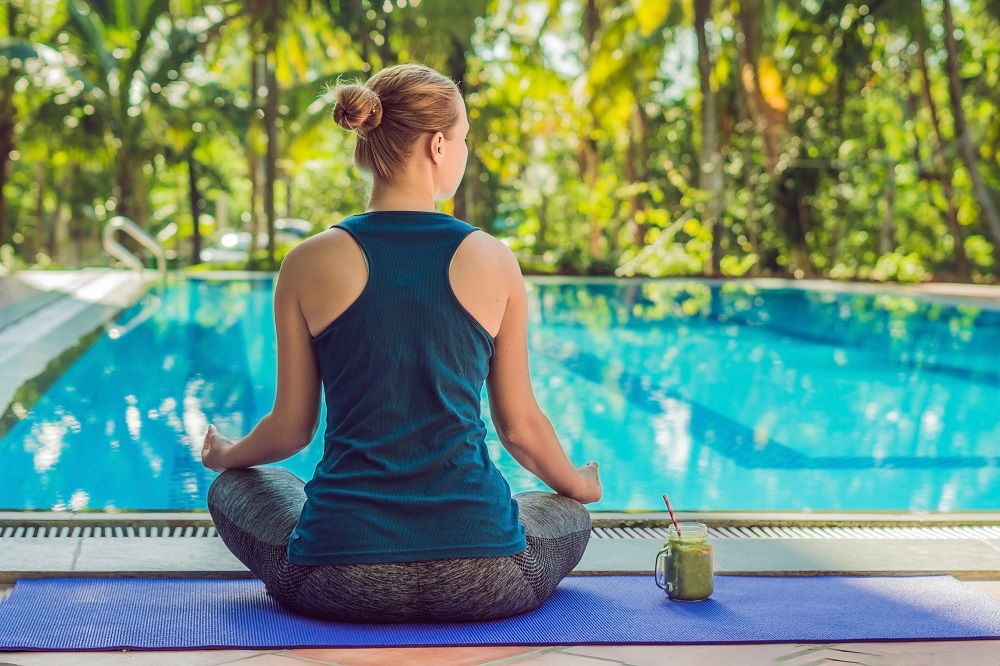When you’re traveling in the summer, taking advantage of the hotel swimming pool is a must. But whether it’s a 5-star hotel or a budget hotel, certain precautions must be made to protect your sensitive skin from the chlorine.
Before that, let’s talk about this:
What is chlorine?
Chlorine is a strong chemical that is used in swimming pools to kill harmful bacteria present in the water, making the water safer to swim in. However, it can also cause respiratory and skin irritation, especially for those with sensitivities.
What are the possible effects of chlorine?
People who are sensitive to chlorine can experience the effects of prolonged exposure to it, such as itchy eyes, hives, and irritated skin. For those who have respiratory sensitivities, prolonged chlorine exposure may also cause wheezing, difficultly breathing, runny nose, and coughing.
However, people with no skin or respiratory sensitivities can also experience adverse effects from chlorine. The main reason for this is the presence of chloramines in the water, which are resulting compounds when chlorine reacts with urine, sweat, and oils in the pool. Thus, whether or not you are sensitive, proper precautions must be made to protect yourself.
How to protect yourself from chlorine
When you’re on vacation, the last thing you want is for your skin to act up and ruin your day. So before you dip in the pool, here are some things to remember:
1. Assess the pool’s quality
If you’re staying in a cheap hotel or motel, it’s probably not a good idea to swim in the pool. Pools in low-cost places are usually poorly-maintained, and this can mean that the water hasn’t been replaced in a long time.
On the other hand, if you’re staying in a mid-range or high-end hotel, it’s still a good idea to check the water’s quality. Stay away from the pool if you notice the following signs:
- Discolored, murky, or cloudy water
- Slimy handrails, floor, etc.
- Dirt, filth, and moss in the filters
- Too many people in the pool, especially children
- Strong “pool” smell
- Visible contaminants such as food, plants, insects, etc.
2. Shower and moisturize before and after swimming
Take a shower before going into the pool to decrease the amount of pool water your body will absorb. It is also a good idea to use conditioner to create a barrier between your hair and the chlorine.
After swimming, take a good, long shower to remove the contaminants and chlorine from your body. Make sure to moisturize before and after swimming to keep your skin hydrated as well.
 3. Wear a swim cap and goggles
3. Wear a swim cap and goggles
Protect your eyes and hair from irritation by wearing a swim cap and goggles. Alternatively, you can at least pin your hair back if you don’t want to wear a swim cap.
4. Limit exposure
Even if the water is crystal clear, limit your exposure to the pool if you have skin sensitivities. Take regular breaks, and don’t forget to shower in between.
5. Use a skin lotion
Lotion provides a layer of protection between the pool water and your skin, which helps reduce exposure.
Don’t let your skin sensitivities ruin your vacation. If you want to enjoy your time in the pool, take note of these precautions before swimming. More importantly, when you’re in doubt about the water’s quality, don’t risk it. There are always other ways to enjoy your vacation other than swimming.

